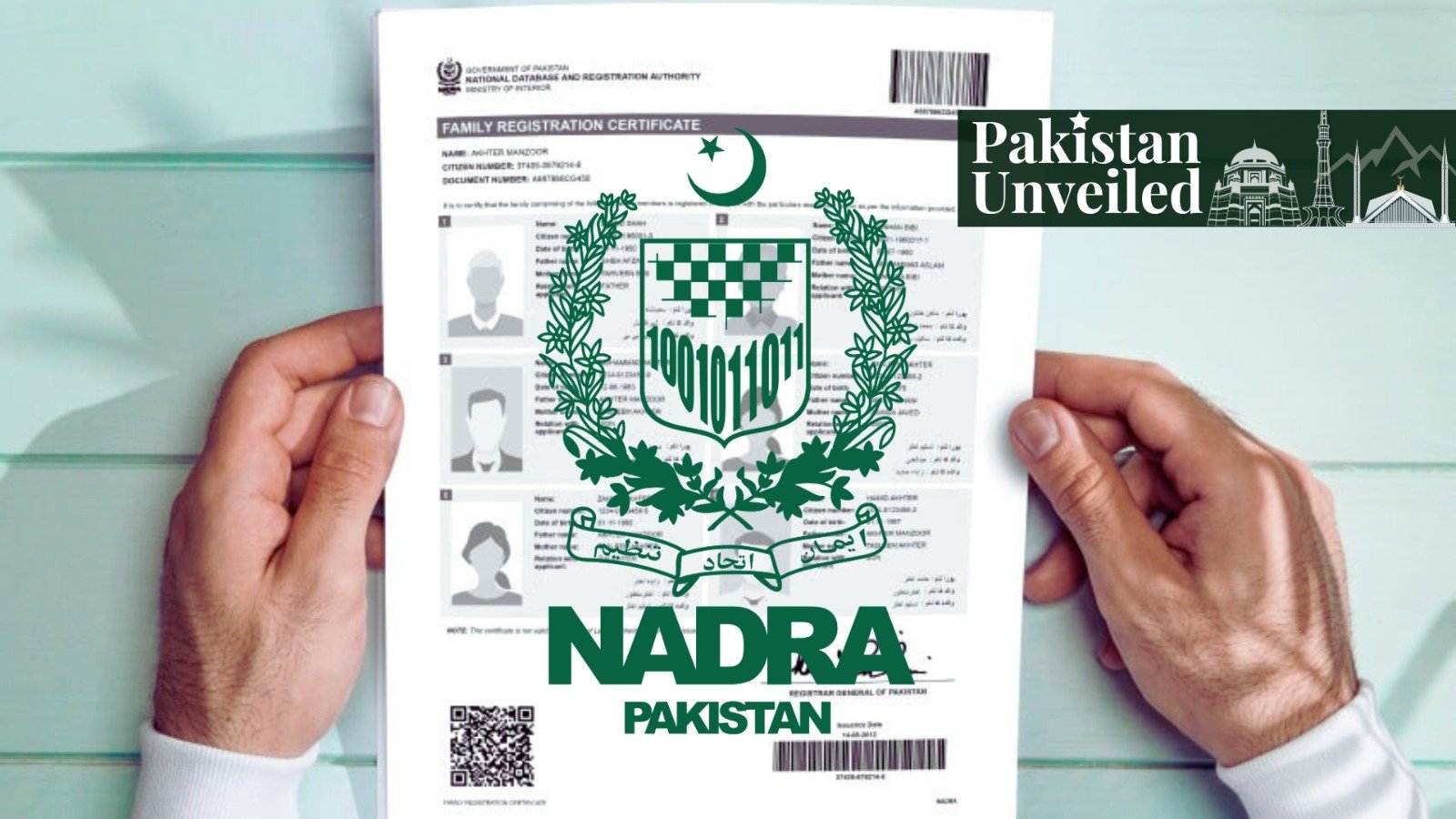In Pakistan, the Family Registration Certificate (FRC) is one of the most important documents issued by the National Database and Registration Authority (NADRA). In contrast to the person-centered CNIC (Computerized National Identity Card), the FRC offers a formalized history of family structure, including parents, spouse, and children. This renders it indispensable in cases of legal, education, and immigration issues.
What Is an FRC?
The FRC is a formal NADRA-issued document (see the description of the Family Registration Certificate offered by NADRA) that describes the structure of a family stored in its database (NADRA). It is available in a digital (via [Pak-Identity portal][PakID]) form, and can be used to confirm family ties based on records of NADRA.
Types of Family Registration Certificates
NADRA categorizes FRCs into three types to cater to different familial situations:
- By Birth – Shows the applicant with parents and siblings.
- By Marriage – Includes the applicant’s spouse and children.
- By Adoption/Guardianship – Includes adopted or legally dependent individuals.
Why is the FRC Important?
The FRC is getting more significant at the domestic and international levels:
- Visas and Immigration: The foreign embassies usually make requests to the FRC to confirm the family set-up.
- Higher Education Abroad: Universities can demand FRC to prove the sponsorship and family histories.
- Inheritance and Property Disputes: Assist in providing suitable heirs in court.
- Legal and Administrative: helpful in several government and legal processes.
- Digital Record Keeping: Secures family information in the system of NADRA in a precise way.
How to Apply for an FRC
You can obtain an FRC via:
In-person at NADRA Registration Centers (NRCs)
- Visit your nearest NADRA office.
- Provide a valid CNIC or B-Form.
- Submit biometric verification (thumb impression).
- Choose the type of FRC.
- Pay the applicable fee.
- Receive the certificate, typically within a few hours.
- Online via Pak-Identity Portal
- Create an account on [Pak-Identity] via NADRA’s website.
- Upload scanned CNIC/B-Form of each family member.
- Select the FRC type, fill in the details, and pay via card.
- Download your digitally signed FRC PDF, often delivered within 24 hours.
Common Challenges
Despite advancements, several issues persist:
- Incomplete or outdated records: Missing data or unlinked family members (especially spouses or minors) can delay or prevent issuance.
- Access issues: Rural or remote applicants may struggle due to fewer NRCs or low digital literacy.
- Unawareness: Many citizens only realize the importance of the FRC when needed urgently, leading to last-minute stress.
- Costs and delays: Though relatively affordable, repeated corrections can be financially burdensome; verification delays also frustrate applicants.
FRC vs. Other NADRA Documents
It’s useful to differentiate the FRC from documents like the CNIC, Smart CNIC, and B-Form:
- CNIC/Smart CNIC: Individual identity.
- B-Form: For minors under 18.
- FRC: Represents the family unit’s identity, offering a snapshot of relationships in one document.
For more family-related NADRA documents (like Child Registration Certificate, Succession Certificate, etc.), visit NADRA’s Identity Documents page (NADRA).
Future and Recommendations
Some steps can be carried out with the aim of helping make the Family Registration Certificate more effective and accessible. Firstly, the government can initiate the incorporation of e-governance whereby FRCs automatically keep track of life events like births, marriages, or deaths, lessening the load of manual updating. In conjunction with the above, awareness campaigns in rural and remote areas need to be carried out just to sensitise citizens on the value and application of the FRC. The further development of the digital infrastructure and the growth of NADRA centres in underserved areas would contribute to the process becoming more efficient and inclusive, as well. Lastly, the concept of waivers or reduced-cost treatment of families with low income, who might need frequent updates or corrections, would eliminate the possible financial obstacles and make the FRC system more approachable to citizens and fair.
Conclusion
The Family Registration certificate (FRC) is not merely a piece of paper in a bureaucratic format, but it reflects the legal and social organization of Pakistani families. It is also important in international mobility, inheritance, and identity verification.
Despite NADRA modernising application processes with internet portals, issues such as the quality of data, accessibility, and awareness by the elimination of sceptics still beckon. These will be addressed to make sure that homes in Pakistan can easily test their relations and rights, both within and outside.
If you want to submit your articles and/or research papers, please visit the Submissions page.
To stay updated with the latest jobs, CSS news, internships, scholarships, and current affairs articles, join our Community Forum!
The views and opinions expressed in this article/paper are the author’s own and do not necessarily reflect the editorial position of Paradigm Shift.
Mohammad Urva Rind is a student of Defence and Strategic Studies at Quaid-i-Azam University, Islamabad, with a keen interest in South Asian security and diplomacy, along with painting a positive image of Pakistan.



